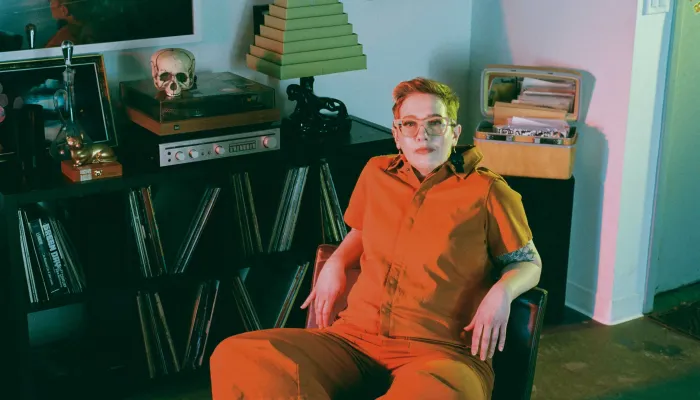Susan Musgrave
Biography
Susan lives on Haida Gwaii, islands in the North Pacific that lie equidistant from Luxor, Machu Picchu, Ninevah and Timbuktu. She has published over 30 books —poetry, novels, non-fiction, books for children. The high point of her literary career was finding her name in the index of Montreal‘s Irish Mafia. Her new book of poetry, Exculpatory Lilies, was published by M&S in 2022. Susan Musgrave likes to quote Hunter S. Thompson, who said, “I don’t advocate sex, drugs, violence or insanity, but they’ve always worked for me.” Given that this is a high school anthology she has to add, “Just kidding,” so she doesn't get sent to the principal's office.
Micro-interview
In Grade 9 I kicked an apple core in line and was sent to the library to serve my detention. I made the most of my punishment, and started reading the library books, which is more than the librarian must have done or else Irving Layton’s The Bull Calf, full of four letter words, would have been pulled from the shelves.
I didn’t feel qualified to write about sex, but after reading Layton I became more experimental. I wrote poems full of words I couldn’t pronounce - “Evolutionary Obsequies,” for example. The poem itself rolled off the tongue a bit more easily. “Life is like a candle. Blow it and it’s gone.”
Particular poems I read? My parents has The Collected Works of Alfred Lord Tennyson at home, so I read a lot Tennyson. My mother gave me Dylan Thomas’s Deaths and Entrances for Christmas when I was fifteen. In Grade 10 we read earl birney’s poem, “David,” and had to count the metaphors and similes, which I thought was not the way to approach a poem. Before reading “David,” I thought all poets were dead, or lived in England, so it was a shock to discover that someone was writing, here at home.
I started writing stories when I was in the fourth grade. In Grade 7 I started listening to Bob Dylan and that’s when I began to write poetry. Real life, I decided, had to do with human rights demonstrations, smokestacks and factories - none of which we had in the city of Victoria, where I grew up. But I had an imagination, and a romantic streak. I wrote poems set in ghettos in Detroit, odes to drowned cigarette butts in cups of cold coffee. I called my poems “Ode to Existence” and “Futility #16 in Blue”. I knew one thing, though: I felt a lot less futile after having written a poem. In fact, poetry made me feel like existence might not be as futile as I had made it out to be in the poems which made my parents think I was crazy. They had me committed to a psychiatric institution. A professor from the University of Victoria, who heard through my psychiatrist that I was writing poetry, came to visit me. He read some of my poems and said, “You’re not mad, you’re a poet!”
I’ve always believed it’s a writer’s job to shake up the status quo. My teachers used to tell me I had “the wrong attitude”. As far as I’m concerned, it’s the only kind of attitude a writer can have.
I am not sure “inspired” is the word I would use: I had to assume the persona of a drug-addicted prostitute to write this series. “Question” is one poem in this series called Heroines. I was commissioned to write a poetic script — to be used as a voice-over — for a film about Lincoln Clarkes and the heroin-addicted prostitutes he has photographed in Vancouver’s Downtown Eastside. “Heroines” was released on Bravo, on Father’s Day in 2001.
I don’t set out, ever, intentionally, to memorize a poem. I believe we remember what we need to remember. For instance, Margaret Atwood’s “You fit into me/ like a hook into an eye. A fish hook. An open eye” I didn’t set out to memorize it. I just read it a few times and it imprinted itself in my brain, the way lyrics to a song imprint themselves when you hear it enough times.


